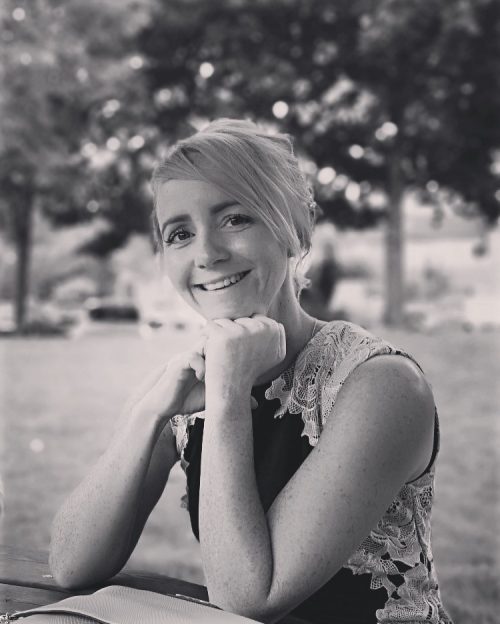
Like PARS practice itself, every PARS training course turns out differently, depending on the participants and their experience. However, PARS trainers around the world find that a common set of themes arise no matter who or where they train. Our UK PARS Licensed Trainer, Rebekah Jackson, reflects on some of those themes from the recent UK POP (PARS Online Practicals) course….
POP (PARS Online Practicals) is the online version of PARS Practicals, our PARS short course. I was involved in the pilot of the POP course delivered by Dr Shelly Newstead in July this year, so was interested to see how what we had learnt about delivering the course online during the pilot would work in practice. Funnily enough, the same themes that I had encountered in face-to-face PARS Practicals training were very much present online….
Seeing things differently….One of the themes that consistently comes up in PARS training is the importance of different perspectives. The POP’ers on our recent course reflected on how their team works and made changes to how they share their different perspectives, which has given them a new appreciation of their strengths, individually or collectively. One manager said that she often sees things from a different perspective as she works in the office for a good chunk of the session. However, sharing her perspective with those who are working ‘hands on’ with the children has really brought home to her the importance of context. Another setting took an experimental approach to adding more ‘loose parts’ to their setting and then used this as a focus of reflexive practice with their staff team. In this way, the whole setting benefited from new thinking introduced in the POP course, as well as developing their reflexive practice as a team.
Empowering children to take the lead wherever possible is a really important outcome of all PARS training, and this group were no exception! John and Tim worked really hard in this area and developed their practice quite a bit. They changed how they do the first part of the session to allow kids to set the intention, which really changed the tone and feel of the whole setting. They were also supporting kids to do more outside, including rolling around and playing in the autumn leaves! Maria and Bridget became a lot more aware of standing back and not intervening without ‘just cause’, and Catherine and Sioned found practicing being ‘unobtrusive’ really powerful. For many adults doing PARS training, this idea of adults stepping back can feel uncomfortable, and can lead some to feel redundant or even guilty that they are ‘doing nothing’! Luckily the way that the POP course is structured means that we can support adults over a number to weeks to get used to new ways of working and support new practice as it becomes more familiar.
Unstructuring time.…We also discussed how ‘doing festivals’ and setting up structured craft activities can lead to children simply following adult instructions, rather than making their own decisions about how to use their free time and the resources available to them. As a result, all the participants re-considered how they are going to have festivals as a ’theme’ to aid the resourcing of the space, rather than insisting that children take part in specific activities. Similarly, all of the settings changed the way that they offered craft materials, so that children could have free access to the resources, rather than having to use them for a pre-defined craft activity. Several participants reflected how impressed they were at the creative ways that children used the materials without the need for any adult involvement. Like most settings however, they all had limited budgets, so we discussed practical ideas for appropriate intervention to prevent the kids from flying through the available craft stuff! Maria came up with the idea of a ‘buffet table’ where children can have free access to the day’s materials, rather than a free for all to the craft cupboard, which seemed to be a great compromise.
‘Parents’....is another regular theme on PARS courses. In this group we talked quite a bit about supporting parent’s understanding of how the settings were changing their practice and why parents were seeing their kids doing different things and the staff doing things differently! However, in PARS we also take a very practical approach to working with parents. For example, for the groups who were supporting children in more outdoor (and inevitably mucky!) activity, we looked at being respectful and mindful of parent’s ability to have multiple sets of clean uniform throughout the week and practical solutions that could be offered by the settings.
Even though POP is a short course, by the last session the participants could clearly articulate what they’ve been doing, why, and how in terms of the PARS model. As with any new ways of doing things, practice makes perfect. These POP’ers have already made such significant changes for children in their settings in a very short space of time, and I look forward to catching up with them in a few months time to see where else the PARS model has taken them!